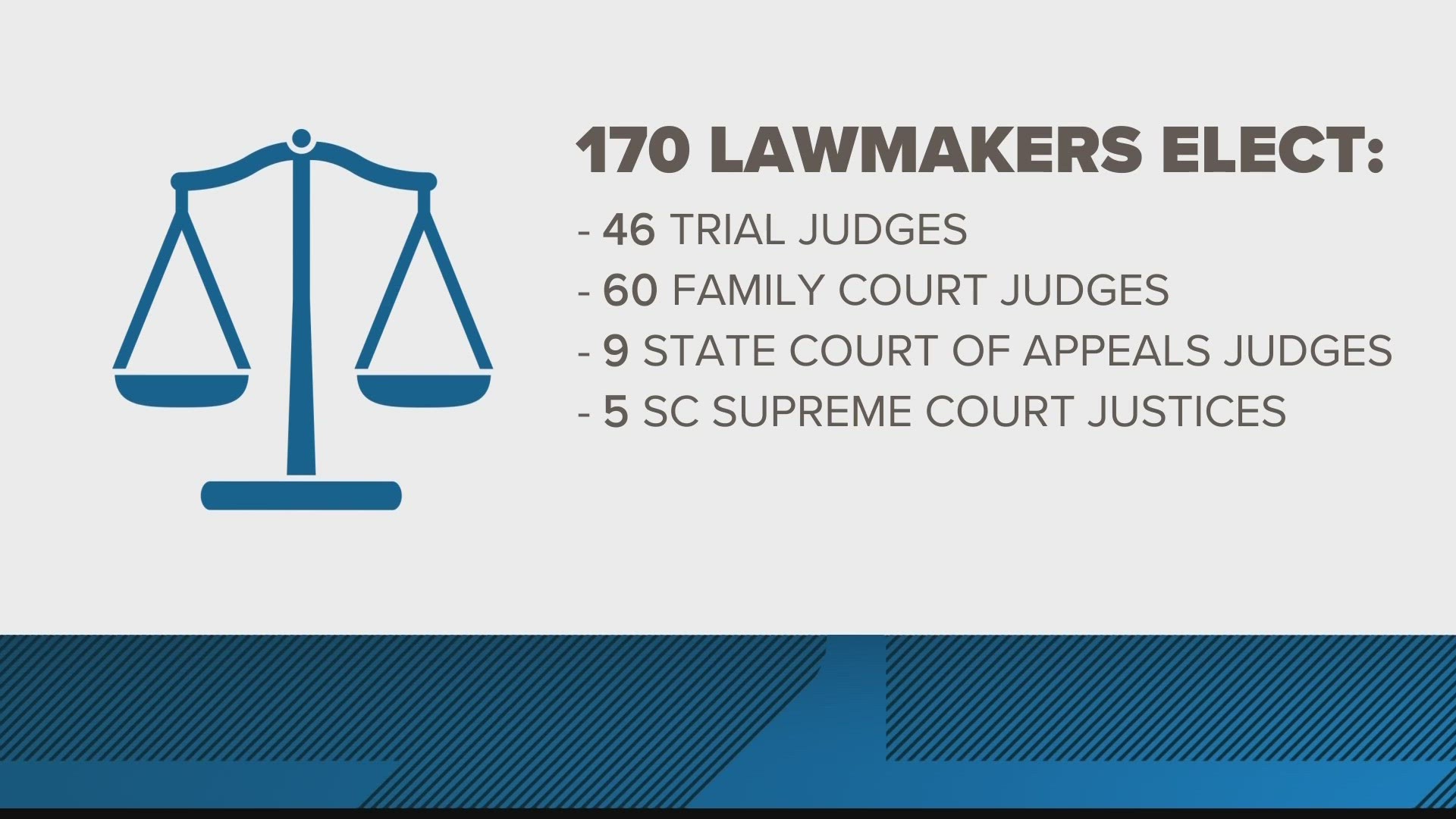COLUMBIA, S.C. — A bipartisan group of prosecutors and sheriff's from across the state are calling on lawmakers to change how judges are elected in South Carolina.
South Carolina is one of two states where lawmakers select most judges.
While the group isn't advocating for any specific legislation, they said they don't support popular election of judges.
“We all agree that whatever is done, that the executive branch of government have equal say," South Carolina Attorney General Alan Wilson said at a press conference on Monday.
Right now, 170 lawmakers elect the state's 46 trial judges, 60 family court judges, nine state court of appeals judges, and five supreme court justices. Candidates are screened by the Judicial Merit Selection Commission (JMSC).
Six of the commission's ten members are legislators who are also lawyers. The panel advances up to three qualified candidates to the floor for a vote. Candidates need a simple majority vote to be elected.
The group called for three changes to the current system:
1. Allowing the names of all candidates found qualified for a judge's position to be voted on by the General Assembly.
2. Allowing the Governor to pick members of the Commission with Senate approval.
3. Banning lawmakers who are lawyers from being on the commission.
“I think there are a lot of insider deals going on with regard to the selection of judges, and we need to put an end to that," said 1st Circuit Solicitor David Pascoe.
The changes face opposition from lawmakers like House Minority Leader Todd Rutherford, who sits on the JMSC.
“What they would be doing is taking the election of judges away from 170 people and giving it to one," said Rutherford. "There’s no way that’s bringing it closer to the people, There’s no way that provides transparency."
Governor Henry McMaster said he backs the changes.
"Having the governor appoint the judges and have them confirmed by the senate yes or no, have hearing, which is how they do it in the federal system, that works and I think that’s what we oughta do," said McMaster.
With just over a month left in the legislative session, change this year is unlikely.

